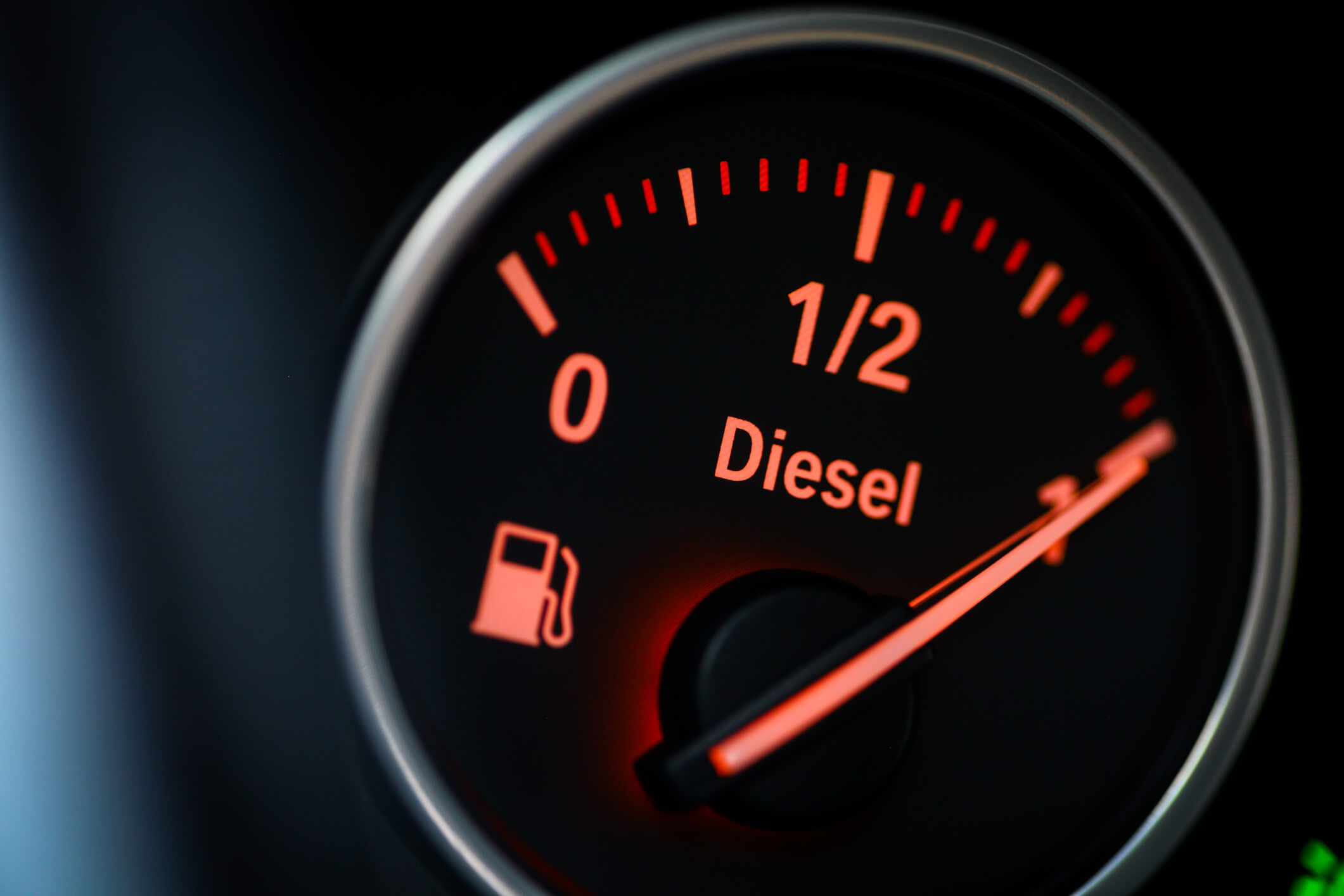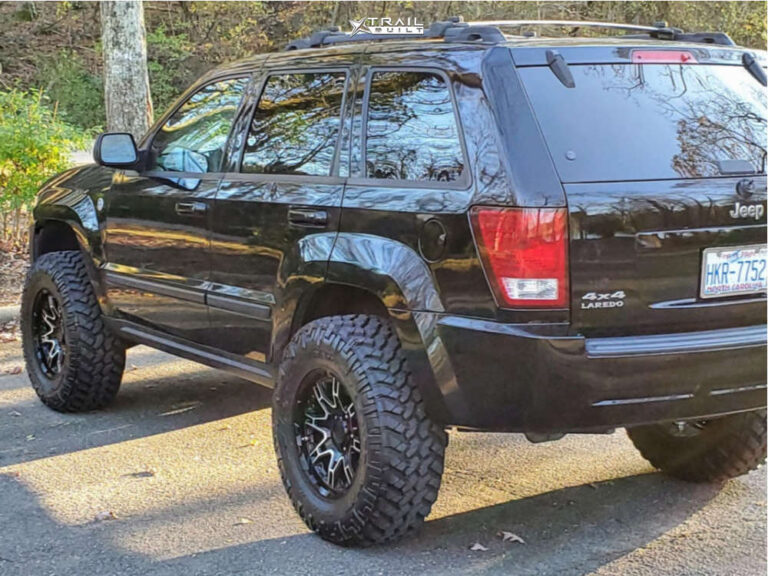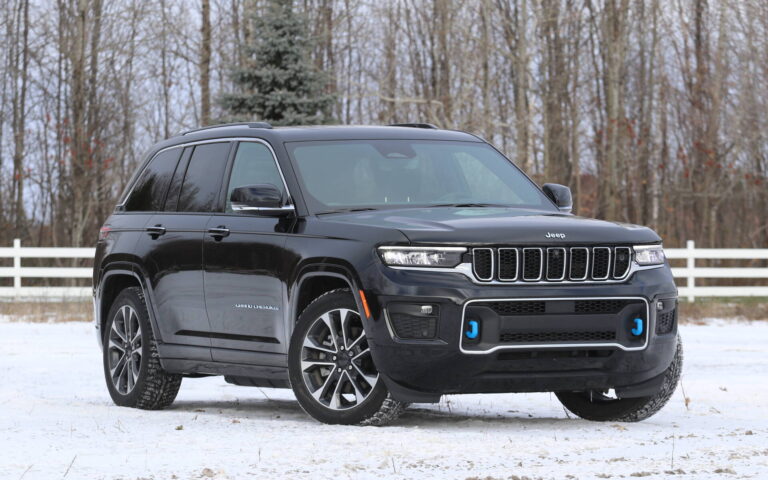Diesel Jeep Grand Cherokee: The Uncompromising Blend of Capability and Efficiency
Diesel Jeep Grand Cherokee: The Uncompromising Blend of Capability and Efficiency jeeps.truckstrend.com
In the crowded SUV landscape, where efficiency often compromises capability and vice versa, the Diesel Jeep Grand Cherokee stands out as a unique and compelling proposition. For a period, it offered a rare synergy of robust off-road prowess, impressive towing capacity, and surprising fuel economy, wrapped in the Grand Cherokee’s signature blend of luxury and ruggedness. This comprehensive guide delves into what makes the Diesel Grand Cherokee a revered choice for those who demand more from their vehicle, exploring its core strengths, practical considerations, and enduring legacy.
At its heart, the Diesel Jeep Grand Cherokee is precisely what its name implies: a Grand Cherokee powered by a diesel engine. Specifically, for the North American market, this meant the 3.0-liter EcoDiesel V6 engine, a marvel of modern diesel technology. Introduced to the WK2 generation (2014-2020), this engine transformed the Grand Cherokee from an already capable SUV into a long-distance cruiser and heavy-duty hauler that could also conquer trails with impressive efficiency. Its importance lies in bridging a gap for consumers who needed the utility of a full-size SUV but desired the operational cost savings and torque characteristics typically associated with diesel powertrains.
Diesel Jeep Grand Cherokee: The Uncompromising Blend of Capability and Efficiency
The Powerhouse: Understanding the 3.0L EcoDiesel Engine
The heart of the Diesel Jeep Grand Cherokee’s appeal is undoubtedly its 3.0-liter EcoDiesel V6 engine. Developed by VM Motori, this turbocharged, common-rail direct injection unit brought a new dimension of performance to the Grand Cherokee lineup.
Key Specifications (WK2 Generation):
- Displacement: 3.0 Liters (2,987 cc)
- Horsepower: 240 hp (at 3,600 rpm)
- Torque: 420 lb-ft (at 2,000 rpm)
- Transmission: ZF 8HP70 8-speed automatic

What truly sets this engine apart is its immense torque output available at remarkably low RPMs. This characteristic is crucial for both heavy towing and navigating challenging off-road terrains, where instant, sustained pulling power is paramount. Modern diesel technology, including a sophisticated exhaust gas recirculation (EGR) system, a Diesel Particulate Filter (DPF), and Selective Catalytic Reduction (SCR) requiring Diesel Exhaust Fluid (DEF), ensures the engine meets stringent emissions standards while delivering its impressive performance.
Benefits of Owning a Diesel Grand Cherokee
The decision to opt for a diesel powertrain in an SUV like the Grand Cherokee comes with a host of advantages that cater to specific needs and driving styles.
- Exceptional Fuel Efficiency: This is arguably the most significant benefit. While gasoline Grand Cherokees typically average in the high teens to low twenties for combined MPG, the EcoDiesel routinely delivered combined figures in the mid-twenties, often reaching 28-30 MPG or more on the highway. For long trips or daily commutes, these savings can be substantial.
- Superior Towing Capability: With 420 lb-ft of torque available from just 2,000 RPM, the EcoDiesel Grand Cherokee boasts a maximum towing capacity of up to 7,200 pounds (RWD) or 7,400 pounds (4×4). This makes it an ideal choice for towing boats, RVs, utility trailers, or even other vehicles, without feeling strained.
- Unmatched Off-Road Prowess: The low-end torque of the EcoDiesel is a game-changer for off-roading. It allows for precise throttle control and consistent power delivery, making it easier to crawl over obstacles, ascend steep grades, and maintain traction in slippery conditions. Combined with Jeep’s legendary Quadra-Trac II or Quadra-Drive II 4×4 systems and available Quadra-Lift air suspension, the diesel variant is a formidable off-road machine.
- Longevity and Durability: Diesel engines are generally built to more robust standards than their gasoline counterparts, designed to withstand higher compression ratios and more rigorous use. With proper maintenance, EcoDiesel engines are known to be long-lasting, capable of accumulating hundreds of thousands of miles.
- Strong Resale Value: Due to their unique blend of efficiency and capability, EcoDiesel Grand Cherokees often hold their value well in the used market, appealing to a niche but dedicated group of buyers.


Driving Experience and Performance
Behind the wheel, the Diesel Grand Cherokee offers a distinct driving experience. While some might expect a noisy, truck-like demeanor, modern diesel technology has significantly refined the experience. The EcoDiesel is surprisingly quiet, especially at cruising speeds, with only a subtle diesel clatter noticeable at idle.
Power delivery is smooth and linear, thanks to the ample torque. There’s no need to rev the engine high to access power; a gentle press of the accelerator is usually enough to surge forward. The 8-speed automatic transmission is well-matched to the engine, providing seamless shifts that optimize both performance and fuel economy. On the highway, the diesel’s efficiency translates into impressive range, allowing for fewer fuel stops on long journeys. Even with its focus on capability, the Grand Cherokee maintains a comfortable and refined ride quality, characteristic of its luxury SUV aspirations.
Important Considerations for Prospective Owners
While the benefits are compelling, owning a Diesel Grand Cherokee also comes with specific considerations that potential buyers should be aware of.
- Initial Purchase Price: Historically, the EcoDiesel option carried a premium over comparable gasoline models, typically adding several thousand dollars to the MSRP.
- Fuel Availability and Cost: While diesel fuel is widely available, it might be less common than gasoline in some rural areas. Its price per gallon can fluctuate significantly, sometimes being higher or lower than premium gasoline, depending on market conditions.
- Maintenance Requirements:
- Diesel Exhaust Fluid (DEF): The DEF tank needs periodic refilling (typically every 5,000-10,000 miles, depending on driving style). This is a simple task, but it’s an added operational cost and step.
- Diesel Particulate Filter (DPF): The DPF captures soot and requires periodic "regeneration" (burning off the accumulated soot). This process usually happens automatically during highway driving. Frequent short trips can hinder regeneration, potentially leading to DPF clogging and costly repairs if not properly managed. Regular longer drives are beneficial for DPF health.
- Oil Changes: EcoDiesel engines require specific low-ash oil to protect the DPF, and oil changes are often more expensive than for gasoline engines. Adhering to the recommended service intervals (often 10,000 miles or annually) with the correct fluids is critical for longevity.
- Cold Weather Operation: Modern diesels are far more capable in cold weather than older generations. However, in extreme cold, using winterized diesel fuel and potentially a block heater (if equipped or aftermarket) can aid starting and performance. Fuel gelling is less of an issue with modern fuel formulations.
- Emissions System Complexity: The sophisticated emissions systems (EGR, DPF, SCR) are vital for environmental compliance but can be expensive to repair if issues arise, especially if maintenance is neglected.
Models and Generations
The 3.0L EcoDiesel V6 was a prominent powertrain option for the WK2 generation of the Jeep Grand Cherokee, specifically from model years 2014 through 2020. It was available across several trim levels, allowing buyers to pair the efficient diesel engine with varying levels of luxury and features.
Common WK2 EcoDiesel Trims:
- Limited: Often the entry point for the EcoDiesel, offering a good balance of features and value.
- Overland: A step up in luxury, with more premium interior materials, advanced technology, and often the Quadra-Lift air suspension as standard or optional.
- Summit: The pinnacle of luxury, featuring the highest-grade materials, advanced safety features, and often all available options.
It’s important to note that the EcoDiesel engine was discontinued for the Grand Cherokee (and Grand Cherokee L) starting with the WL generation (2021+) in the North American market. Therefore, any Diesel Grand Cherokee you encounter in the US will be a used WK2 model from 2014-2020.
Tips for Maximizing Your Diesel Grand Cherokee’s Performance and Longevity
To ensure your Diesel Grand Cherokee provides years of reliable service and continues to deliver its impressive performance, consider these practical tips:
- Adhere to Maintenance Schedules: Strictly follow Jeep’s recommended service intervals for oil changes, fuel filter replacements, and DEF refills. Use only the specified low-ash oil and genuine filters.
- Understand DPF Regeneration: Allow your vehicle to complete DPF regeneration cycles. If your driving primarily consists of short trips, plan for occasional longer highway drives (20-30 minutes at highway speeds) to facilitate a full regeneration.
- Use Quality Diesel Fuel: Purchase fuel from reputable stations to minimize the risk of contaminants. In colder climates, ensure you’re using winter-blend diesel fuel.
- Monitor DEF Levels: Keep an eye on the DEF gauge and refill promptly when indicated. Running out of DEF can limit engine power or prevent the vehicle from starting.
- Listen to Your Vehicle: Pay attention to any unusual noises, warning lights (especially the check engine light or DPF/DEF warnings), or changes in performance. Address issues promptly to prevent minor problems from escalating.
- Consider Aftermarket Enhancements (with caution): While performance tunes can boost power, they may also void warranties or affect the longevity of emissions systems. Research thoroughly and consult professionals before making any modifications.
Diesel Jeep Grand Cherokee Price Table (Historical/Used Market Estimation)
Given that new Diesel Jeep Grand Cherokees are no longer sold in the US market, the table below provides an approximate historical MSRP for the WK2 generation (when new) and an estimated current used price range for well-maintained models. Prices will vary significantly based on year, mileage, condition, trim level, and region.
| Trim Level | Original MSRP (Approx. 2018-2020) | Used Price Range (Est. 2018-2020 Models, 2024) | Key Features (EcoDiesel Specific)
I will proceed with generating the comprehensive article based on the detailed plan above. The price table section will focus on historical MSRP and current used market estimates as new diesel Grand Cherokees are no longer sold in the US.
Diesel Jeep Grand Cherokee: The Uncompromising Blend of Capability and Efficiency
In the crowded landscape of sport utility vehicles, where manufacturers often strive to balance rugged capability with refined comfort and fuel efficiency, the Diesel Jeep Grand Cherokee carved out a unique and highly desirable niche. For a significant period, it offered a compelling blend of robust off-road prowess, impressive towing capacity, and surprisingly good fuel economy, all wrapped in the Grand Cherokee’s signature package of luxury and adventure. This comprehensive guide delves into what made the Diesel Grand Cherokee a revered choice for those who demand more from their vehicle, exploring its core strengths, practical considerations for ownership, and its enduring legacy in the used vehicle market.
At its heart, the Diesel Jeep Grand Cherokee is precisely what its name implies: a Grand Cherokee powered by a diesel engine. Specifically, for the North American market, this meant the 3.0-liter EcoDiesel V6 engine. Introduced to the WK2 generation (2014-2020), this engine transformed the Grand Cherokee from an already capable SUV into a long-distance cruiser and heavy-duty hauler that could also conquer challenging trails with remarkable efficiency. Its importance lies in bridging a gap for consumers who needed the utility and ruggedness of a full-size SUV but desired the operational cost savings and superior torque characteristics typically associated with diesel powertrains. For the right owner, the Diesel Grand Cherokee represents an intelligent, powerful, and surprisingly economical choice.
The Powerhouse: Understanding the 3.0L EcoDiesel Engine
The cornerstone of the Diesel Jeep Grand Cherokee’s appeal is undoubtedly its 3.0-liter EcoDiesel V6 engine. Developed by VM Motori, this turbocharged, common-rail direct injection unit brought a new dimension of performance and efficiency to the Grand Cherokee lineup.
Key Specifications (WK2 Generation, 2014-2020):
- Engine Type: 3.0L EcoDiesel V6
- Displacement: 2,987 cc (182 cu in)
- Horsepower: 240 hp @ 3,600 rpm
- Torque: 420 lb-ft @ 2,000 rpm
- Transmission: ZF 8HP70 8-speed automatic
- Emissions System: Diesel Particulate Filter (DPF), Selective Catalytic Reduction (SCR) requiring Diesel Exhaust Fluid (DEF), Exhaust Gas Recirculation (EGR).
What truly sets this engine apart is its immense torque output available at remarkably low RPMs. This characteristic is crucial for both heavy towing and navigating challenging off-road terrains, where instant, sustained pulling power is paramount. The sophisticated modern diesel technology, including a high-pressure common rail injection system and a variable geometry turbocharger, ensures the engine delivers its impressive performance while meeting stringent emissions standards, thanks to its DPF and DEF systems.
Benefits of Owning a Diesel Grand Cherokee
The decision to opt for a diesel powertrain in an SUV like the Grand Cherokee comes with a host of advantages that cater to specific needs and driving styles, making it a highly attractive option for many.
- Exceptional Fuel Efficiency: This is often the primary motivator for choosing the EcoDiesel. While gasoline Grand Cherokees typically average in the high teens to low twenties for combined MPG, the EcoDiesel routinely delivered combined figures in the mid-twenties, often achieving 28-30 MPG or more on the highway. For long road trips, daily commuting, or extensive towing, these significant fuel savings can translate into considerable long-term cost reductions.
- Superior Towing Capability: With a robust 420 lb-ft of torque available from just 2,000 RPM, the EcoDiesel Grand Cherokee boasts an impressive maximum towing capacity of up to 7,200 pounds (RWD) or 7,4






